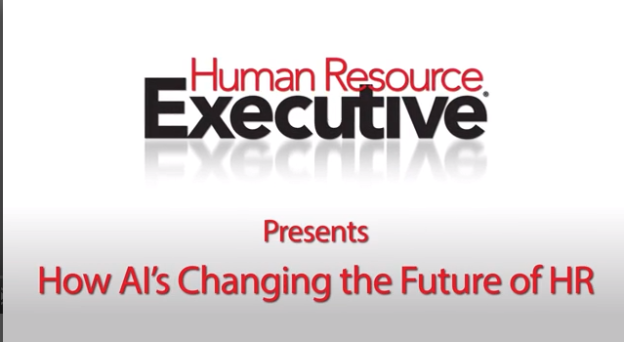Every year I republish my “state of the HR union” article from previous years with new additions and edits as a challenge to each of you. Am I on target, or did I miss anything pertinent?Â
Early every year, the President of the United States makes an address to the nation. The purpose of the annual “State of the Union†address is to give an account of the year's events and discuss the priorities of the coming months. If communicated properly, this is an opportunity to reach a larger audience, share major goals, and get buy-in from the constituency.
So, why don't we give it a shot?

I think every HR pro needs to have their own State of the Union address within their own company, department, or team (depending on the level of responsibility). This is strategic HR communication at its best, and it could become a valuable tool to allow leaders to peer into the inner workings of the HR strategy while allowing HR leaders to share key results areas as well. In fact, even compliance can be strategic, if communicated properly.
When I think about this, I remember the best boss I ever had. She did an annual HR “touch base” meeting to get us on the right track, get everyone on the same page, and help to lay out key themes and strategies for the year. In reality it was a team of two of us, but she brought in additional stakeholders and interested parties to hear the session, giving them a peek into our priorities. It also allowed them to see how we might be able to help them and enable their success, a primary part of how I define successful HR.
She was always good at pointing out the need to be agile, knowing that business needs could dictate changes in our approach. Knowing that the HR strategy could change rapidly helped to give me some sense of control, despite the complete lack of it! That’s one reason I put together the following video a while back, because I know that the HR strategy sometimes changes, shifts, or even fails. We need to be prepared for some of those eventualities.
Featured Video: What to Do if Your HR Strategy Fails
HR Needs to Step Up
Are you ready for me to step on your toes? Here's a quote from one study I found:
“Only 20 percent of [the largest publicly traded] companies discuss HR in their reports to shareholders. About one-quarter provides only limited references to the workforce, and some don't mention their employees at all.â€
Can you imagine how our stakeholders would react if we spent 30-50% of our budget on a resource and then never followed up about how it was being utilized? In effect, this is what's happening with regard to our human capital investments. People are quick to say that payroll is the largest line item in a company’s budget, but then when it comes to proving how we’re doing in terms of diversity, development, direction, etc. we fall down on the job.
I did a little digging and found a few examples of HR annual reports that organizations have created. You’ll see some interesting insights in them, from hard statistics proving the value of the HR function to strategic plans for the coming year ahead.
- Deutsche Bank-Lays out progress toward long-term “Strategy 2020” goals that belong to the business, not HR. This example also provides the most comprehensive data around specific performance of the various HR practices–for example, 1 in 3 employees were hired from internal candidates and 10,000+ internal staff changed roles during the year, providing ongoing talent and development opportunities for workers.
- John Carroll University-Gives a one-page executive summary followed by monthly highlights of programs and contributions to the organization.
- UCF-Demonstrated specific metrics around HR performance, from increased screening measures to specific training points and diversity improvements.
Nobody said you have to create a full-color, 25-page report to show what you’re doing. But a one-page executive summary with key insights into the core HR areas? That’s totally doable. At a minimum, it should cover:
- Recruiting–what has your performance been like? Common metrics? Best success story as a case in point?
- Training and development–how much, what kind, and most importantly, what has it enabled the business to achieve?
- Safety and health–what is the progress/status? What’s the well-being of your staff? Are they performing and productive?
- Strategy–is your HR team aligned with the business in terms of overarching strategy? Can you demonstrate that alignment with a few examples of how HR projects and accomplishments translated into the business strategy or impacted business outcomes?
How big is your “union?â€
As I stated above, depending on where you are in your organization's hierarchy, you might only be addressing your HR teammates. Or maybe you have the ability to snag an audience with your senior leadership team, and you're willing to put together a short presentation for that group.
Whatever the case, the size and target audience will be different for everyone, but the tips below will still help you in defining what to discuss.
What to say
Okay, so I've sold you on the idea of delivering your own “state of HR†address, but what do you actually say? Here are a few ideas
- Talent retention—Discuss retention initiatives and any cost savings associated with reduced turnover
- Learning and development—Give examples of new human capital capabilities brought about by learning and development investments
- Performance management—Talk about increased performance or reduced turnover expenses associated with improved employee performance
- Leadership strategy—Provide insights into the role the leadership strategy has played in supporting business growth
- Sales strategy and planning—Offer data to demonstrate how HR supported the needs of the sales staff and leadership
These certainly aren't the only topics you can cover, but this is a good starting point based on what organizational leaders want/need to hear. Remember, your goal is to demonstrate that HR isn’t just a cost center, but that you’re bringing value to the organization and its people on a regular basis.
The bottom line? This is your chance to get in front of a key audience (whether it's the rest of your team or another influential group) and share your message about how HR's priorities align with those of the business.
What are you waiting for?
Closing Question to Ponder
- Which stakeholders would benefit most from hearing this address from you or your HR leaders?
- What are the key issues your leaders are facing that you can include in your address?
- What is the best format for your culture, geography, and leadership preferences that makes sense to deliver this? Internal webinar/teleconference? In-person with slides? Handouts and a conference room? Hint: think about how finance or marketing would present something like this and do something similar, assuming those functions are respected within the organization.


